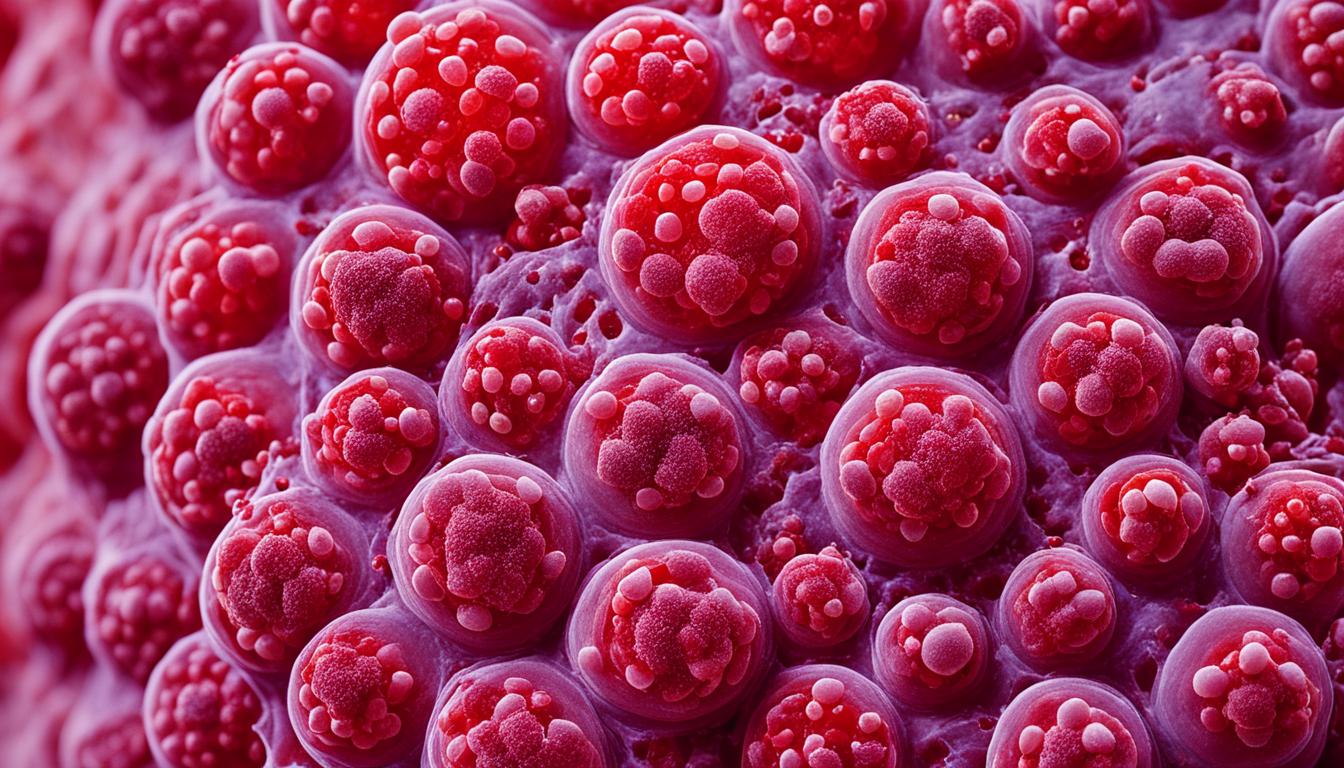Genital herpes is a common sexually transmitted infection (STI). It’s caused by the herpes simplex virus (HSV). This virus affects millions worldwide. It leads to the development of painful sores and blisters in the genital area, anus, and nearby parts.
You can get the herpes virus through sexual contact. A person can pass it on, even if they don’t have visible sores. This is why safe sex is crucial to prevent its spread. During childbirth, a pregnant woman with herpes can also transmit it to her baby, which is risky for the baby’s health.
People with genital herpes may feel like they have the flu at first. They might experience symptoms like fever and muscle aches. Soon small, fluid-filled blisters form on the affected areas. The first outbreak is usually the worst and can last 2 to 4 weeks. Later outbreaks are less severe and heal quicker.
At the moment, there is no cure for genital herpes. But, antiviral medications can help. They manage symptoms and reduce how often outbreaks happen. Taking these drugs during an outbreak can make you feel better and help you heal faster. Besides medication, staying healthy, managing stress, and keeping your immune system strong can also help.
Key Takeaways:
- Genital herpes is a sexually transmitted infection caused by the herpes simplex virus (HSV).
- It can cause painful sores and blisters on the genital area, anus, and surrounding regions.
- The virus can be transmitted through sexual contact, even from an infected partner without visible sores.
- Symptoms include flu-like symptoms, fever, muscle aches, and the formation of small, fluid-filled blisters.
- There is currently no cure for genital herpes, but antiviral medications can help manage symptoms and reduce the frequency of outbreaks.
Causes and Transmission of Genital Herpes
Genital herpes is an STI caused by the HSV virus, mainly HSV-2. HSV-1, known for oral herpes, can also spread to the genital area through oral sex.
It spreads mainly through sexual contact, including vaginal, oral, and anal sex. Skin-to-skin contact can also spread it, even without visible sores. The virus enters through small cuts in the skin or mucous areas.
If someone gets the herpes virus, it stays in their body. It can lead to repeat outbreaks that differ in how frequent and severe they are for each person.
Several things can trigger these outbreaks, like stress, other illnesses, hormonal changes, and a weak immune system.
- Stress: It can lower the immune system, making outbreaks more likely.
- Illness: Health issues that weaken the immune system can also trigger outbreaks.
- Hormonal changes: Outbreaks might happen during periods of hormonal change, like menstruation.
- Weakened immune system: If the immune system is weak, it’s harder to fight off the virus, leading to outbreaks.
To lower the risk of spreading genital herpes, safe sex is key. It means using condoms, which can help prevent the virus from spreading during sex. Also, sharing your herpes status with a partner is important for making informed decisions about sex.
Diagnosis and Treatment of Genital Herpes
Genital herpes is diagnosed by noting symptoms and lab tests. A doctor might test a sore’s fluid to confirm herpes. Blood tests also reveal if there are HSV antibodies (herpes symptoms).
Management starts with reducing outbreak effects and frequency (herpes treatment). Doctors usually prescribe antiviral drugs for symptom control. This can be during outbreaks or daily to prevent new ones.
For severe or frequent outbreaks, daily antivirals might be advised. Working closely with healthcare providers helps develop the best treatment plan. It’s crucial for those with genital herpes to keep in touch with their doctors.
Importance of Safe Sex and Seeking Medical Advice
Aside from treatment, safe sex is vital for avoiding spread. Condoms reduce both virus spread and STI risk. It’s key to talk openly with partners about your health.
Getting medical advice is essential for proper herpes management. Doctors can offer treatment advice and support. Regular check-ups maintain your health and well-being.
| Diagnosis of Genital Herpes | Treatment of Genital Herpes |
|---|---|
| Based on physical symptoms and laboratory tests | Antiviral medications to manage symptoms and reduce outbreak duration |
| Sample testing of fluid from sores | Daily suppressive therapy for recurrent outbreaks |
| Blood tests to detect HSV antibodies | Safe sex practices to prevent transmission |
Let’s continue to the next section to explore the potential of stem cell therapy for genital herpes.
Stem Cell Therapy for Genital Herpes
Stem cell therapy is being looked at for helping with various health problems, like genital herpes. Scientists want to see if using stem cells from fat tissue can make our immune system work better. This could help make genital herpes show up less often and not be as bad.
These special stem cells, called MSCs, can calm down the body’s reaction to things. This is key because too much reaction can make herpes worse. They are also being tested for other viruses like cytomegalovirus.
Right now, stem cell therapy for herpes is a new idea and not easy to get. But, it shows a lot of hope for the future. More studies are needed to know if it’s safe in the long run. If you’re thinking about trying this, talking to a doctor who knows about stem cells is a good idea.

